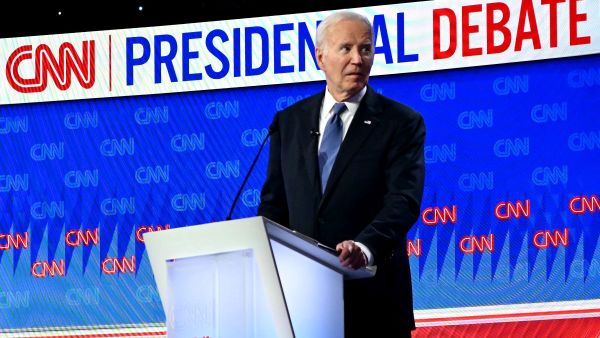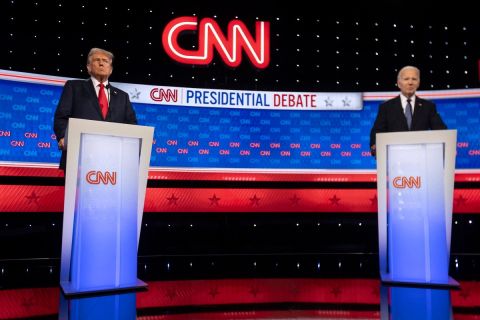ALBAWABA - There are growing talks that President Joe Biden would not run for reelection in the next U.S. presidential election, after a poor showing and growing worries.
This conjecture comes after Biden's lackluster analogy to former President Donald Trump, which sparked discussions evoking bygone eras of American political history.
Several Democrats have called on President Joe Biden to step aside from running in the upcoming elections, while party circles discuss nominating alternatives such as Gavin Newsom for the presidency.
Leading Democrats are demanding on President Joe Biden to drop out of the elections due to his debate performance. The Democratic party's anxiety has expanded from legislative circles to wealthy coastal areas where significant contributors live and to Democratic strongholds nationwide. Biden's poor performance in a CNN debate with former President Donald Trump prompted this reaction.
Former Democratic presidential candidate Andrew Yang said that Biden should retire due to leadership issues. Biden, 81, struggled to speak clearly and coherently throughout the debate, raising questions about his physical and mental health.
Biden's scratchy voice and mental gaps were noticeable, as was his strain. Democrats worried that his performance was confirming Trump's unfavorable image from the last election campaign.
Biden's performance left many undecided voters wondering his fitness for another term, despite his efforts to recover later in the discussion. After the debate, Democratic activists have called on Biden to resign online and offline.
Lyndon B. Johnson did so in 1968, the last time a sitting U.S. president has chosen not to run for reelection while being eligible. Johnson said on March 31, 1968, that he would not run for president again, citing growing popular unhappiness with the Vietnam War and internal strife despite winning the 1964 election.
Prior to Johnson, President Harry Truman likewise declined to run for reelection in 1952, even though he was qualified after winning the presidency in 1948.
After Franklin D. Roosevelt passed away in 1945, Harry S. Truman became presidency. He announced his decision on March 29, 1952, and cited the Korean War and declining popularity as reasons.
In a similar vein, Calvin Coolidge, who succeeded Warren G. Harding as president in 1923 and was re-elected in 1928 after Harding's death, declined to run for office again in 1928 even though he was qualified to do so.










